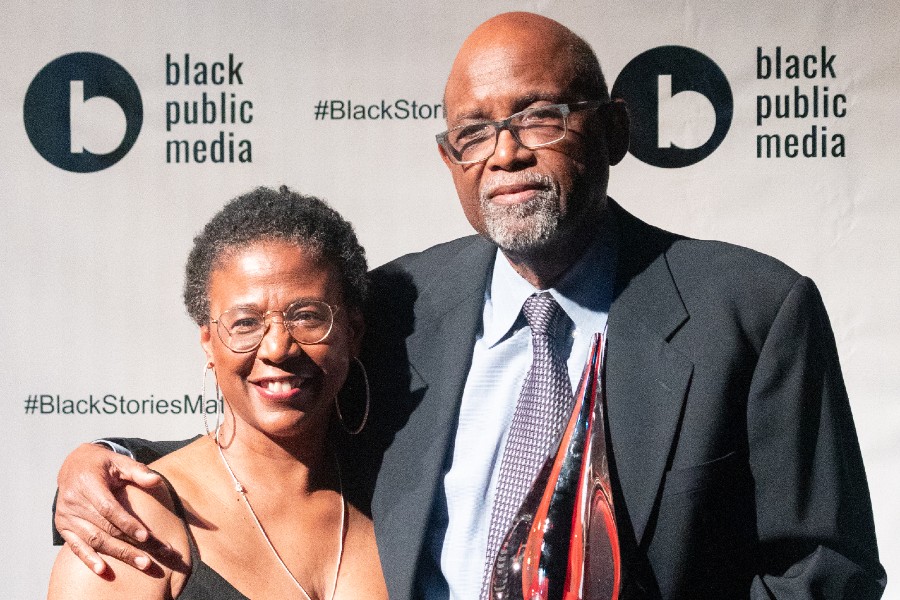 Francine Everett, April 13, 1915 – May 27, 1999, was an African-American actress and singer who is best known for her performances in race films, independently produced motion pictures with all-black casts that were created exclusively for distribution to cinemas that catered to African American audiences.
Francine Everett, April 13, 1915 – May 27, 1999, was an African-American actress and singer who is best known for her performances in race films, independently produced motion pictures with all-black casts that were created exclusively for distribution to cinemas that catered to African American audiences.
Born as Franciene Williamson in Louisburg, North Carolina in 1915, her father, Noah, was a tailor. She married Booker Everett in 1933, aged 18. That marriage was dissolved and she later remarried to actor Rex Ingram. They divorced three years later in 1939. She studied and acted with the Federal Theater in Harlem, which was sponsored by the Works Progress Administration.
Among Everett’s starring roles were the films Paradise in Harlem (1939), Keep Punching (1939) co-starring Canada Lee and Dooley Wilson, Big Timers (1945), which co-starred Moms Mabley and Stepin Fetchit,Tall, Tan and Terrific (1946) with Mantan Moreland and Dots Johnson, and Dirty Gertie from Harlem U.S.A. (1946), directed by Spencer Williams and was called “The Most Beautiful Girl in Harlem.”
Everett appeared as a singer in more than 50 soundies, short musical films that were produced in the 1940s; her most notable soundie was Ebony on Parade (1947), which co-starred Dorothy Dandridge, Cab Calloway and the Count Basie band. She also worked as a model in print advertisements for clothing and cosmetics.
 Everett’s association with Hollywood was brief and desultory. She first arrived in Hollywood in the mid-1930s with her husband, actor Rex Ingram, but refused to accept racially demeaning stereotypical roles. After starring in Dirty Gertie from Harlem U.S.A., she had bit parts in two Hollywood films: Lost Boundaries (1949) and Sidney Poitier’s first film, No Way Out (1950), before retiring from acting.
Everett’s association with Hollywood was brief and desultory. She first arrived in Hollywood in the mid-1930s with her husband, actor Rex Ingram, but refused to accept racially demeaning stereotypical roles. After starring in Dirty Gertie from Harlem U.S.A., she had bit parts in two Hollywood films: Lost Boundaries (1949) and Sidney Poitier’s first film, No Way Out (1950), before retiring from acting.
The clip from Dirty Gertie from Harlem U.S.A. HERE
At the height of her career, Everett was dubbed “the most beautiful woman in Harlem” by columnist Billy Rowe in The Amsterdam News, a black-owned newspaper in New York City. Looking back at her career, filmmaker William Greaves commented: “She would have been a superstar in Hollywood were it not for the apartheid climate in America and the movie industry at the time.”
After retiring from the entertainment industry, Everett took a clerical job at Harlem Hospital in New York. She retired from her hospital job in 1985, and in her later years she spoke about the race films at seminars sponsored by the International Agency for Minority Artist Affairs.
Everett died at a nursing home in the Bronx, New York, aged 84, on May 27, 1999 via source.
Become a Harlem Insider!
By submitting this form, you are consenting to receive marketing emails from: Harlem World Magazine, 2521 1/2 west 42nd street, Los Angeles, CA, 90008, https://www.harlemworldmagazine.com. You can revoke your consent to receive emails at any time by using the SafeUnsubscribe® link, found at the bottom of every email. Emails are serviced by Constant Contact









Thank you for this informative piece, HWM. I had never heard of this lady before–only Lena Horne and Freddie (?) Washington. I appreciate the information.
Robbie